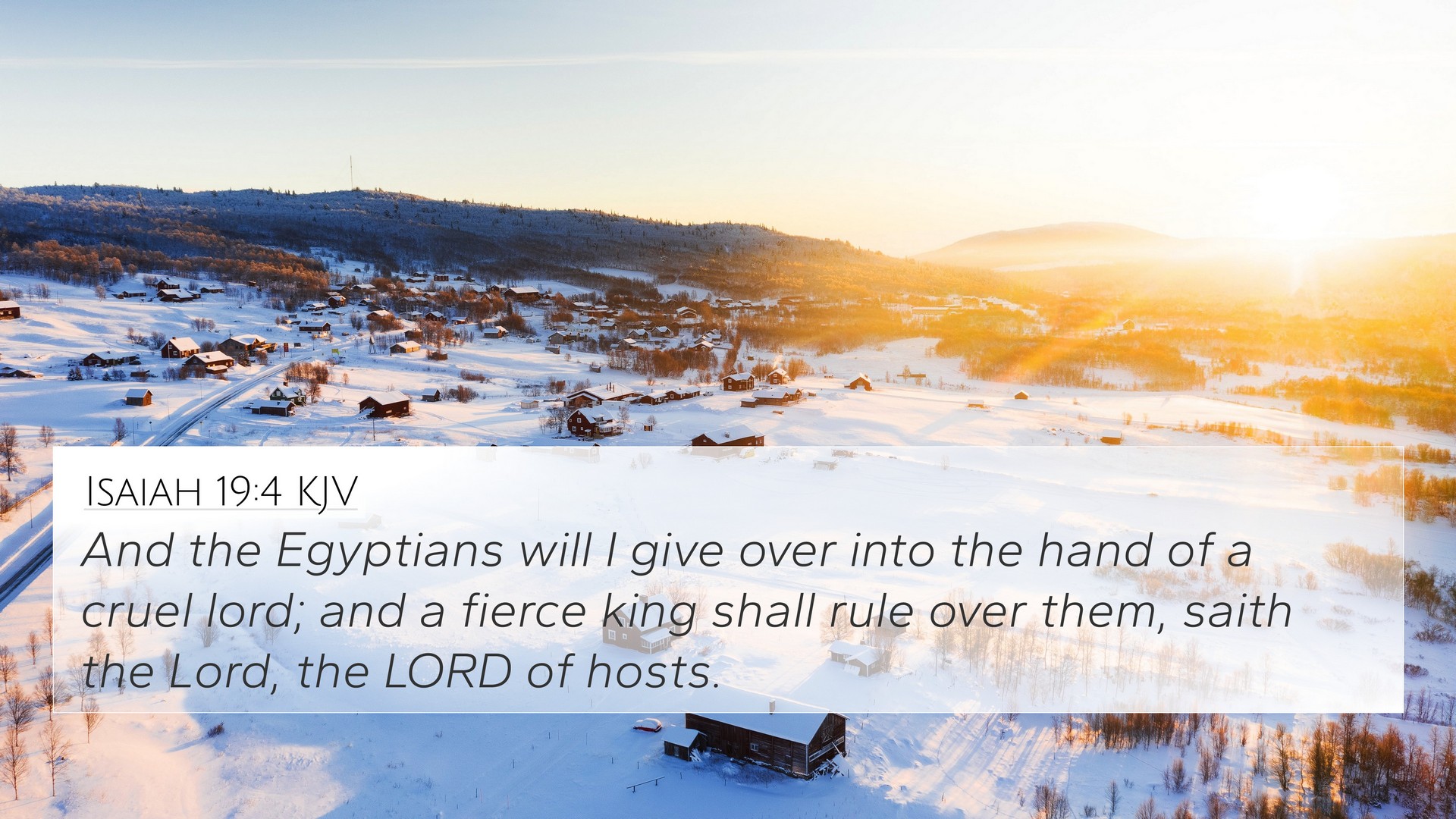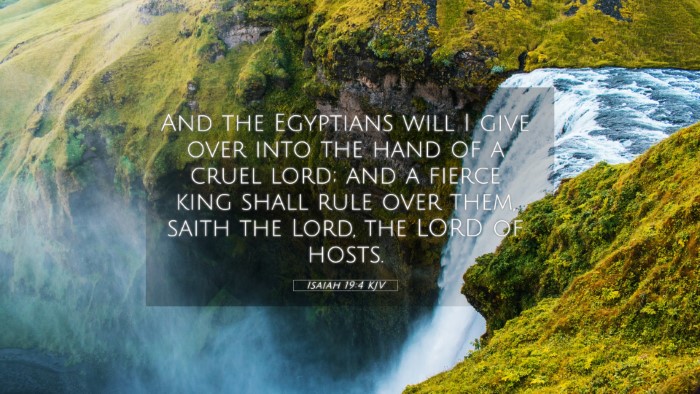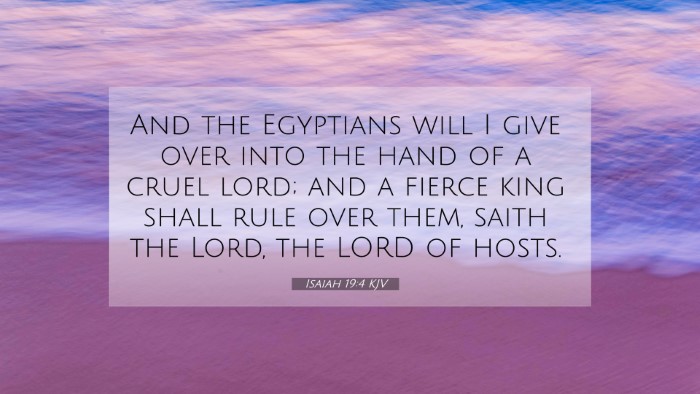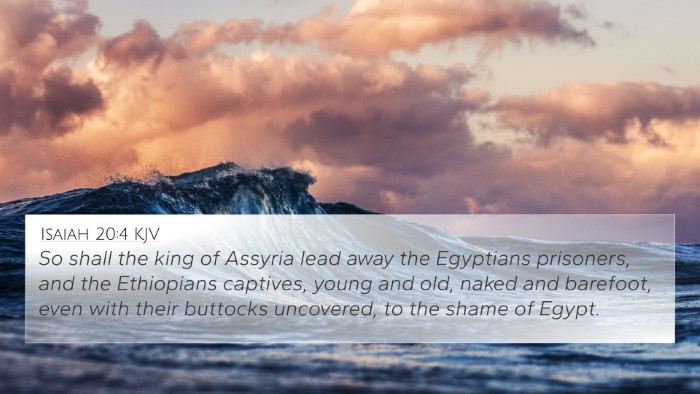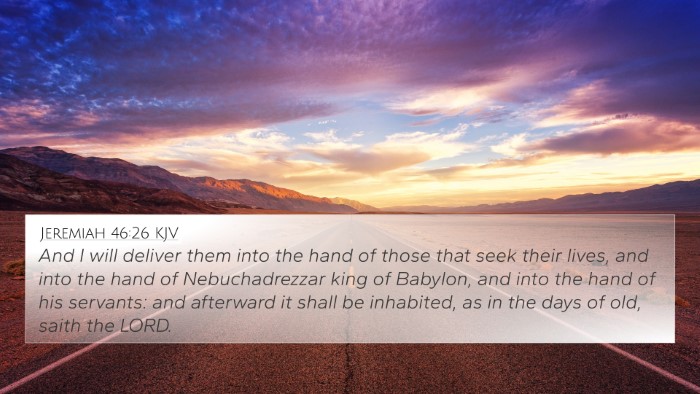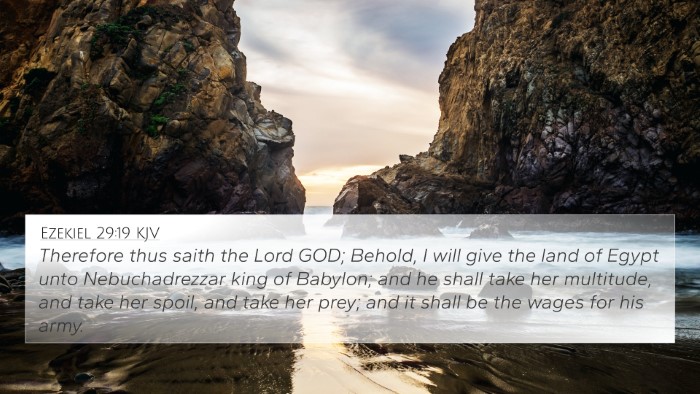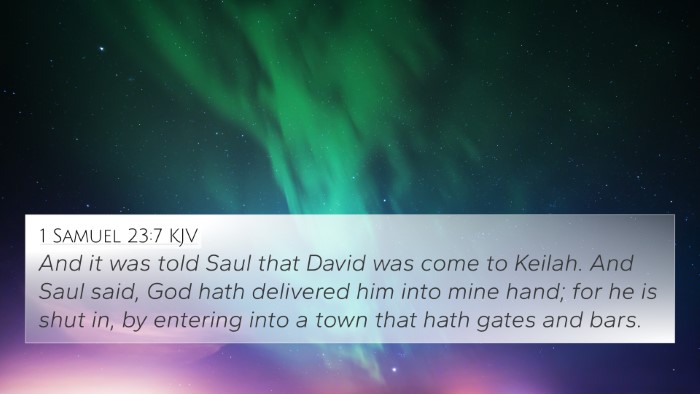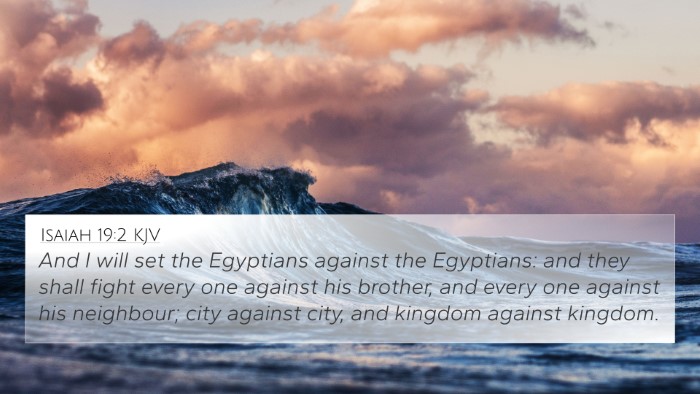Understanding Isaiah 19:4
Isaiah 19:4 states: "And the Egyptians will I give over into the hand of a cruel lord; and a fierce king shall rule over them, saith the Lord, the Lord of hosts." This verse addresses a definitive judgment against Egypt, highlighting both the sovereignty of God and the consequences of disobedience.
Summary of Key Themes
- Divine Judgment: The reference to a "cruel lord" indicates God's use of harsh measures to bring nations, particularly Egypt, to repentance.
- God's Sovereignty: The phrase "saith the Lord" emphasizes that it is God who directs history and raises up rulers.
- Historical Context: This verse was fulfilled in various instances within Egypt's history, particularly during times of invasion and oppression.
Commentary Insights
Insights from prominent commentaries like Matthew Henry, Adam Clarke, and Albert Barnes provide a deeper understanding:
Matthew Henry's Commentary
Henry emphasizes the seriousness of the judgment pronounced against Egypt. He observes that this reflects God’s righteousness in punishing those who turn away from Him, thus leading to consequences that are both political and spiritual.
Albert Barnes' Notes
Barnes elaborates on the notion of a "cruel lord," positing that this could refer to both literal rulers and spiritual conditions that oppress people's hearts and minds due to their separation from God.
Adam Clarke's Commentary
Clarke discusses the historical applications of this prophecy, relating it to the cruel dominion of Assyrian and Babylonian powers over Egypt, symbolizing a greater spiritual reality of oppression faced by a nation straying from divine guidance.
Cross-References for Isaiah 19:4
To fully appreciate the implications of Isaiah 19:4, we can explore its connections with other verses:
- Isaiah 10:5-6: This underscores God's use of Assyria as an instrument of judgment against His people.
- Jeremiah 46:25: This speaks to the ultimate downfall of Egypt due to their rebellion against God.
- Ezekiel 30:21: This describes the calamity that God brings upon Egypt, emphasizing divine control over nations.
- Exodus 1:8: This verse reflects historical oppression of the Israelites, akin to the future cruelty prophesied in Isaiah.
- Daniel 2:21: This illustrates God’s sovereignty in controlling the times and seasons, raising up and deposing rulers.
- Romans 13:1: This highlights the concept that all authorities are established by God, including those who can be cruel or unjust.
- Proverbs 21:1: This supports the idea that the heart of the king is in the hand of the Lord, showcasing His power over rulers.
Thematic Connections
This verse invites a comparison across various Biblical themes, illustrating the interconnectedness of scripture:
- Judgment: The recurring motif of divine judgment against nations disobedient to God, as seen in many prophetic books.
- God’s Remnant: Despite judgment, there exists a theme of hope and redemption for those who remain faithful, seen throughout the prophecies.
- Leadership: The nature of rulers and the impact of their governance reflect the biblical principle that leadership carries spiritual significance.
Research and Study Tools
For those seeking deeper study into Isaiah 19:4 and its context, consider using:
- Bible Concordance: An invaluable tool to find related verses and themes.
- Cross-Reference Guide: This facilitates understanding how different scripture passages relate to one another.
- Bible Study Software: Tools that offer comprehensive cross-referencing capabilities and thematic analysis.
- Visual Aids: Timelines and charts can help illustrate the historical context alongside spiritual themes.
Conclusion
Understanding Isaiah 19:4 involves recognizing the complex interplay of divine judgment, God's sovereignty, and the historical context of Israel and Egypt. Further study through cross-referencing and thematic connections will enrich your grasp of how this scripture fits within the larger biblical narrative.
